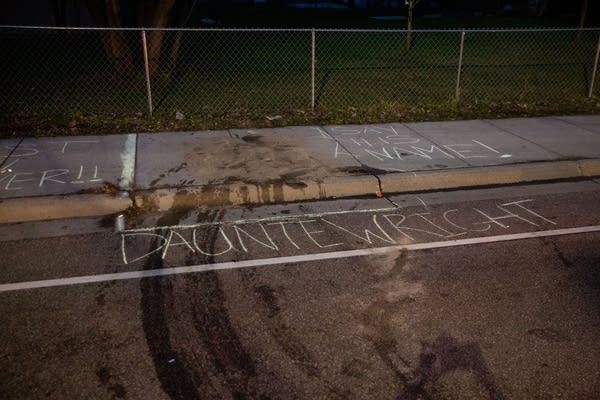Police and traffic stops: When should officers pull drivers over?

Go Deeper.
Create an account or log in to save stories.
Like this?
Thanks for liking this story! We have added it to a list of your favorite stories.
The shooting death of 20-year-old Daunte Wright by former Brooklyn Center police officer Kim Potter last month renewed calls from criminal justice reform advocates to overhaul traffic stop procedures and the methods used by police departments to initiate stops and searches.
What role should traffic stops play in policing? How do police stops and searches affect individuals and communities?
“A traffic stop shouldn’t be a death sentence,” state Rep. Cedrick Frazier, DFL-New Hope, told host Angela Davis.
Frazier spoke about reforms he has championed in the Minnesota Legislature, including limiting certain types of police stops he sees as unnecessary and potentially dangerous.
Turn Up Your Support
MPR News helps you turn down the noise and build shared understanding. Turn up your support for this public resource and keep trusted journalism accessible to all.
The legislation recommended by Frazier would cut back on stops for minor infractions like expired license tags, illegal hanging air fresheners and broken or malfunctioning lights — none of which present a danger to public safety, Frazier said.
“It’s about accountability and reform,” Frazier said. “It’s not going to harm the community.”
Michelle S. Phelps, an associate professor of sociology at the University of Minnesota, agreed with Frazier that “pretext stops are defended as this sort of public safety instrument, but in fact they make us less safe.”
In her research, Phelps has found that many people of color are subjected to frequent stops by police, which has a dehumanizing effect.
“Black and brown people come away from those experiences feeling like, ‘My daily life is criminalized, and I’m a suspect to police officers,’” Phelps said.
A police stop might seem simple, but people fear “that lethal violence might happen,” Phelps said. “They’re scared that they might get arrested, that that might mean they lose their job, that they lose custody of their children.”
“We really need to overhaul how we think about what public safety means and the police role in all of that,” Phelps said.
Cheryl Phillips, a co-founder of the Stanford Open Policing Project, told Davis about the evidence of racial discrimination in police stops and searches she and her colleagues found in a massive dataset covering about 100 million police interactions across the United States.
According to a statistical analysis by the Stanford Open Policing Project, officers required a lower bar of suspicion to search Black and Hispanic drivers than white drivers, which is evidence of discrimination.
The Stanford Open Policing Project also found evidence of discrimination in what Phillips called the “veil of darkness” test.
“Black drivers are stopped less at night than they are during the day,” Phillips said. The race of a driver is less visible at night, so this finding suggests that police are making stop decisions based on race.
Guests:
Rep. Cedrick Frazier is a DFLer who represents Crystal, New Hope and Plymouth in Minnesota's District 45A. He currently serves as the vice chair of the House Public Safety and Criminal Justice Reform Committee. He is the author of several pieces of public safety reform legislation that have been passed by the Minnesota House and are moving through negotiations in the Republican-controlled Senate this week.
Michelle S. Phelps is an associate professor of sociology at the University of Minnesota. Her research focuses on the criminal justice system, including policing, probation and prisons. She is currently working on a book project that analyzes how activists, city leaders and everyday residents have worked to reform and transform policing in Minneapolis.
Cheryl Phillips is a co-founder of the Stanford Open Policing Project, a cross-departmental effort to collect police interaction data and evaluate racial disparities. She is also a Hearst Professional in Residence at Stanford University and the founder of Big Local News. Previously, she worked at The Seattle Times for 12 years in a variety of reporting and editing roles with the investigations team and across the newsroom.
Use the audio player above to listen to the full conversation.
Subscribe to the MPR News with Angela Davis podcast on: Apple Podcasts, Google Podcasts, Spotify or RSS.



